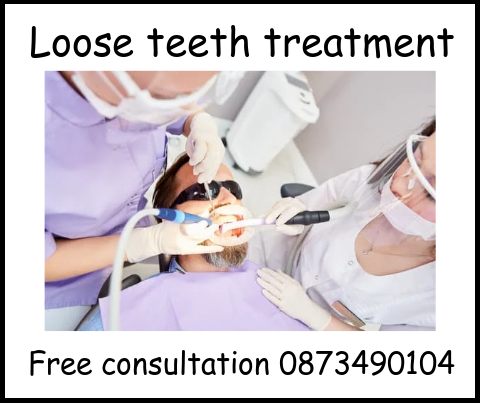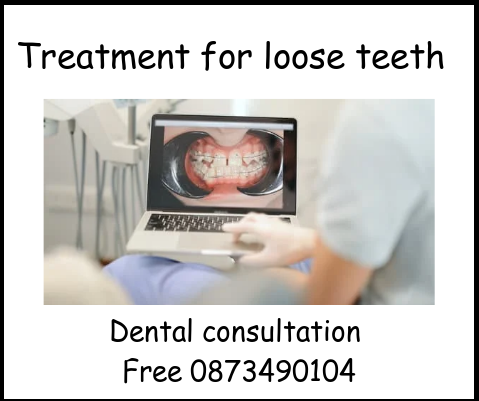Loose teeth treatment
Loose teeth are a real problem that needs to be dealt with, loose teeth treatment begins with understanding the causes of loose teeth and identifying the best treatment for each individual case.

What are loose teeth
Loose teeth, also known as tooth mobility, can be a sign of underlying dental issues that require immediate attention.
If left untreated, loose teeth can lead to tooth loss and have a significant impact on oral health.
In this article, we will explore effective loose teeth treatment to promote the longevity of your natural teeth and ensure a healthy smile.
Call us at Hungarian Dental Implant Centre Wexford on 0873490104, we are happy to give you free dental care advice through a free xray and consultation with our friendly Hungarian dentist.
Our experienced Hungarian dentists can help you to find the best loose teeth treatment in Perfect Smile dental clinic Hungary at an affordable price, contact us here.
1. Identifying the Cause:
Before proceeding with any treatment, it is crucial to identify the underlying cause of tooth mobility.
Loose teeth can result from various factors, including periodontal disease, tooth trauma, teeth grinding (bruxism), and poor oral hygiene.
As each cause requires different treatment approaches, it is important to consult a with our dental professional in Wexford for a thorough examination and accurate diagnosis.
2. Gum Disease Treatment:
Periodontal disease is a common cause of loose teeth. Treating gum disease involves a two-step process: controlling bacterial infection and managing its progression.
This often includes professional dental cleaning, scaling and root planing, antibiotic therapy, and in severe cases, surgical procedures such as gum grafting or periodontal pocket reduction.
Maintaining good oral hygiene practices and regular dental visits are crucial for the success of gum disease treatment.
3. Splints or Stabilization Techniques:
Splinting is a common treatment method used to stabilize loose teeth.
This involves bonding the loose tooth to the surrounding stable teeth using a dental splint or orthodontic wires.
Splinting helps distribute the forces applied to the loose tooth, promoting stability and preventing further movement.
Splints are typically left in place for a specified period while the tooth heals and regains stability.
4. Dental Appliances:
For loose teeth caused by teeth grinding (bruxism), dental appliances such as a nightguard or bite splint may be recommended.
These custom-made oral devices help protect the teeth by reducing the impact of grinding and clenching forces.
Dental appliances can also alleviate associated symptoms like jaw pain and headaches, promoting overall oral health.
5. Root Canal Therapy:
Severely loose teeth due to infection or decay may require root canal therapy.
This loose teeth treatment procedure involves removing the infected dental pulp, followed by cleaning and sealing of the tooth’s root canal system.
Root canal therapy isn’t that expensive, it only eliminates infection but also strengthens the tooth, enhancing its stability.
After the procedure, a dental crown may be placed to provide additional protection and support to the treated tooth.
6. Extraction and Replacement:
In some cases, if a tooth is beyond saving, extraction may be the necessary loose teeth treatment.
Once the tooth is extracted, various replacement options can be considered, such as dental implants, bridges, or dentures.
These options help restore function and esthetics while maintaining proper alignment and stability of the surrounding teeth.

Conclusion:
If you have loose teeth, or crooked teeth it is essential to promptly seek professional dental care to determine the underlying cause and appropriate loose teeth treatment.
With advancements in dental technology and techniques, there is a range of effective affordable treatments available to address loose teeth.
Remember, early intervention and proactive oral hygiene practices are key to preventing further damage and maintaining a healthy smile.
References
https://pubmed.ncbi.nlm.nih.gov/19545321/

